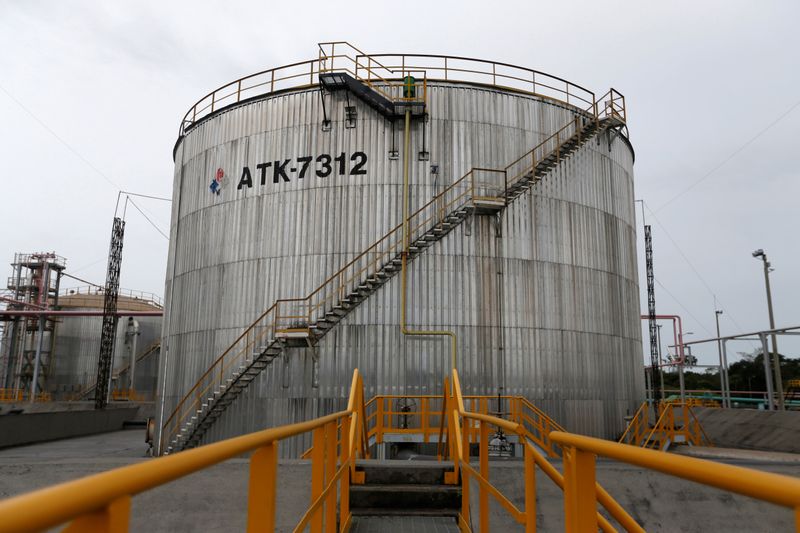(Reuters) – Colombia is pushing energy companies to transition from fossil fuels to non-conventional renewable energies as the South American country pursues a goal of cutting its carbon dioxide emissions by 51% by 2030, President Ivan Duque said on Monday.
The contribution of non-conventional renewable energies to Colombia’s energy matrix was just 0.2% in 2018, with only 35 megawatts (MW) of capacity installed. Duque expects that to reach 2,500 MW by the end of next year.
“There is something very impressive,” Duque said at IHS Markit’s CERAWeek, referring to the transformation of Colombia’s energy mix. “This can be the largest expansion of an energy matrix based on non-conventional renewables.”
Colombia is calling on established oil firms including state-run Ecopetrol to lead the change while they continue investing in oil and gas production. The South American nation is also pushing for greater use of electric vehicles via a ‘clean transportation’ law.
“We are not against oil; we are not against gas”, Duque said, urging companies to make improvements in environmental management.
Duque’s government also aims to expand Colombia’s installed capacity and storage of renewable energies, while building a legal framework and training its workforce to become ‘the silicon valley’ of Latin America, he said.
(This story adds missing word in second paragraph)
(Reporting by Marianna Parraga; Editing by Daniel Flynn)


















